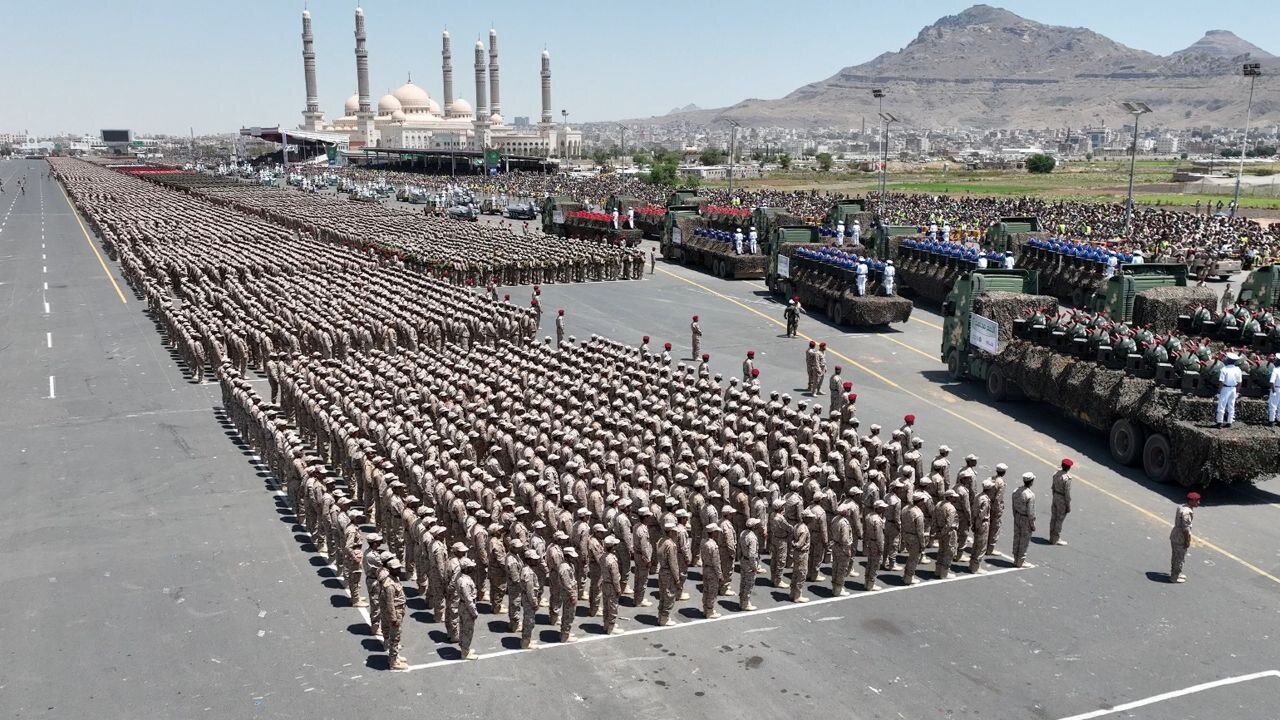Ansarallah undeterred by Israeli attacks

TEHRAN – Hebrew media has shed light on the Israeli aggression on Yemen that took place on Thursday.
The Public Broadcasting Corporation stated that “the attack in Yemen was approved by the Prime Minister (Benjamin Netanyahu) and the Defense Minister (Yisrael Katz) but was not discussed or approved by the security cabinet.”
It also mentioned that only a general overview of developments was presented to cabinet ministers without revealing the targets of the airstrikes.
Additionally, an Israeli reserve officer, one of the pilots who participated in the aggression on Yemen, described the mission as “extremely complex.”
The Israeli major explained that “the strikes were carried out over a distance of about 2,000 kilometers round trip, with more than sixty bombs dropped during the night hours, requiring precision.” He added that “the pilots spent six hours in the aircraft from takeoff to landing.”
The Hebrew Walla news site reported that preparations for the operation lasted for two weeks.
On Thursday, the Israel Hayom newspaper stated that the attack on Yemen was planned as a response to the Yemenis launching more than 200 ground-to-ground missiles and over 170 drones toward Israel.
The newspaper quoted the Israeli military as saying it is “determined to harm the Yemenis and grow intelligence gathering.”
It also emphasized that this was a well-planned operation prepared weeks in advance and not a reaction to the ballistic missile launched from Yemen on Wednesday that targeted the Israeli regime.
A series of violent Israeli airstrikes targeted the capital, Sanaa, and the port city of Hodeidah in western Yemen early Thursday, including the Ras Isa oil facility in the west. The attacks resulted in the deaths of nine civilians and injuries to several employees at the facility.
It was the third direct aggression by the Israeli regime against Yemen in five months.
As Israeli fighter jets were en route to attack Yemen, the Arab country’s Armed Forces launched another ballistic missile at Tel Aviv.
The Israeli military claims to have intercepted the missile and that only fragments of the warhead landed.
However, a former commander of the Israeli army’s air defense system, Zvika Haimovich, said, “What happened with the interception of the Yemeni missile cannot be called a partial interception, as stated by the Israeli army spokesperson, since the warhead directly hit the building.”
A statement by the Yemeni Armed Forces said the hypersonic missile “successfully achieved its objective targeting a military site of the Israeli enemy in occupied Yaffa (Tel Aviv).”
The statement declared, “The Yemeni Armed Forces, as they emphasized in previous statements, confirm their readiness for a long war with this enemy, in support and assistance for Gaza, and in defense of beloved Yemen, and will not stop until the aggression on Gaza stops and the siege on it is lifted.”
In a speech, Ansarallah leader Sayyed Abdul Malik al-Houthi revealed, “The hypersonic missile was launched towards the so-called Israeli Ministry of Defense, coinciding with the Israeli air force’s move to attack our country.”
“The coincidence of the launch of the hypersonic missile with the aggression against our country caused great confusion for the Israeli enemy and even affected the completion of its mission.”
The Ansarallah leader vowed that “the Israeli aggression on our country will never deter us from our position in support of the Palestinian people and their fighters in Gaza.”
He further warned that "the Israeli aggression on our country will not affect the level of escalation we are carrying out within the framework of the fifth phase of escalation and support for the Palestinian people.”
According to Sayyed al-Houthi, “Since the beginning of the support for the Palestinian people until today, 1,147 operations, including ballistic and winged missiles and drones, have been launched at the Israeli occupation, alongside naval operations.”
He stated, “211 ships linked to the enemies were targeted, and the Israeli enemy’s maritime navigation in the Red Sea, Bab al-Mandab and the Arabian Sea was prevented.”
The Ansarallah leader went on to say, “The Israeli enemy has suffered great economic losses, and the impact of our country’s operations is acknowledged by the enemies.”
He added, “The Israeli enemy’s research and studies centers admitted that those they describe as the Houthis have caused serious damage to the Israeli economy.”
In conclusion, Sayyed al-Houthi stressed, “Yemen will not budge from its position in supporting the Palestinian people, regardless of the challenges and attacks from the Americans, the Israelis, or those who revolve around them.”
The United States and Britain have also carried out regular strikes on Yemen over the past year in response to the Sanaa government’s ban on Israeli, American and British ships transiting the Red Sea and the Gulf of Aden.
The Hebrew newspaper Yedioth Ahronoth said, “It is clear that the situation with the Houthis is far from reassuring. Partners who fought against the Houthis warned Israel that the term ‘deterrence’ has no place in the Yemeni dictionary.”
According to the Hebrew paper, “The problem is that the Israeli army, after months of war in the north (with Hezbollah), is not yet in a sufficiently good position to fight in an area much farther from Lebanon at full intensity.”
It also added that "the Israeli port of Eilat remains closed and deserted due to Yemeni attacks.”
In November last year, Yemeni forces opened a military support front in solidarity with Gaza, which has faced a U.S.-backed Israeli genocidal war since October 7, 2023.
Yemen itself was subject to almost a decade of almost daily airstrikes by a Saudi-led and U.S.-backed coalition but managed to fight back.
According to experts, the Sanaa government will not be deterred in its support for Gaza by Israeli attacks.
Leave a Comment